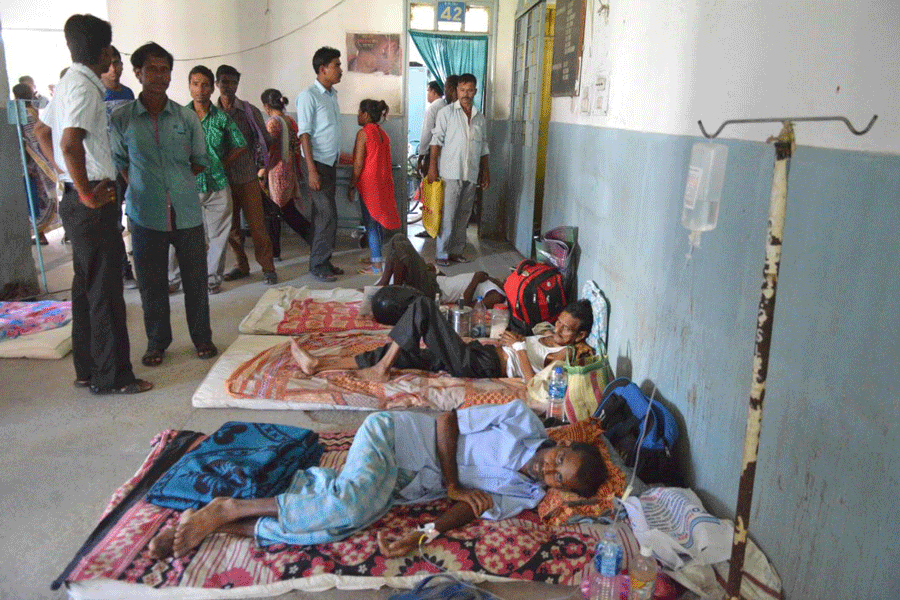Book: MEDICAL MALADIES: STORIES OF DISEASE AND CURE FROM INDIAN LANGUAGES
Author: Haris Qadeer
Published by: Niyogi
Price: ₹495
Haris Qadeer has put together a unique anthology of short stories, bringing literary talents from Urdu, Marathi, Punjabi, Bengali, Hindi, Malayalam, Kashmiri and other languages to people who read in English. It would appeal not only to readers who look to literature as a companion during the ups and downs of life but also to scholars working in fields such as medical humanities and disability studies. The anthology features the works of writers such as Rabindranath Tagore, Zakia Mashhadi, Rajinder Singh Bedi, Rashid Jahan, Jeelani Bano, Bibhutibhushan Bandyopadhyay, Sheeba E.K., Basant Kumar Satpathy, Premchand, Kartar Singh Duggal, Shankar Raina, Saadat Hasan Manto, Bhabendra Nath Saikia, Shirin Shashikant Valavade, Master Bhagwandas, Ashok Vasishth, Annie Zaidi and Amar.
Before plunging into these stories, it is advisable to read the Foreword by David T. Mitchell and the Introduction by the editor of the volume. These essays spell out the intellectual framework that binds the stories together even though each one carries its individual flavour. They dwell upon the relationship between colonisation and modern medicine, question the corporatisation of care in hospitals, and invite readers to think about their own fragility in the face of oppressive institutions such as patriarchy, capitalism, marriage, and the nation-state.
While the stories would be excellent to assign in college and university courses, their primary function is to arouse empathy by taking readers into fictional worlds. Apart from Qadeer and Mashhadi, the translators who have made this possible are Abiral Kumar, Aditya Nayak, Amit Julka, Debayudh Chatterjee, Dhurjjati Sarma, Guntasha Tulsi, Kanupriya Dhingra, Keerti Ramachandra, Mohammed Afzal, Neerja Mattoo, Rajorshi Das and Swetha Antony.
Bedi’s story, “Quarantine”, translated from Urdu by Julka, is memorable for the character, William Bhago Khakrob, a sweeper who is a convert to Christianity. When doctors are scared to go near patients suffering from plague, he takes it upon himself to treat them with respect and dignity in their last few days. He is able to do this because he learns, from Jesus Christ, to lead a life in service of others. At the same time, this story points out that higher-ups in the hospital are willing to risk his well-being because of his caste.
Duggal’s story, “The Longing”, translated from Punjabi by Tulsi, explores the emotional distress experienced by a woman named Rajni who longs for a child to feed, play with, and look after but cannot fulfil this wish as her husband, Partool, wants to abort the foetus. They try to conceive later but are unable to, bringing Rajni tothe verge of a mental breakdown. She takes up a job as a schoolteacher and fulfils her maternal desires through that job.
Not all the stories are translations. Zaidi’s story, “Heartless”, originally written in English, is set in a fictional city where the hearts of citizens are taken away before they turn 30. This is the law of that land. Researchers employed by their rulers find out that “people without hearts participated in fewer crimes of passion, nor did they join strikes or political movements.”
The stories in this volume strike an emotional chord, thanks to the gifted authors and translators who worked on them. However, it could be overwhelming to read more than one or two at a time, especially since memories of the pandemic are still fresh in people’s minds and also because the stories touch upon how unethical and exploitative hospitals can be while preying on the fears and insecurities of vulnerable people.











